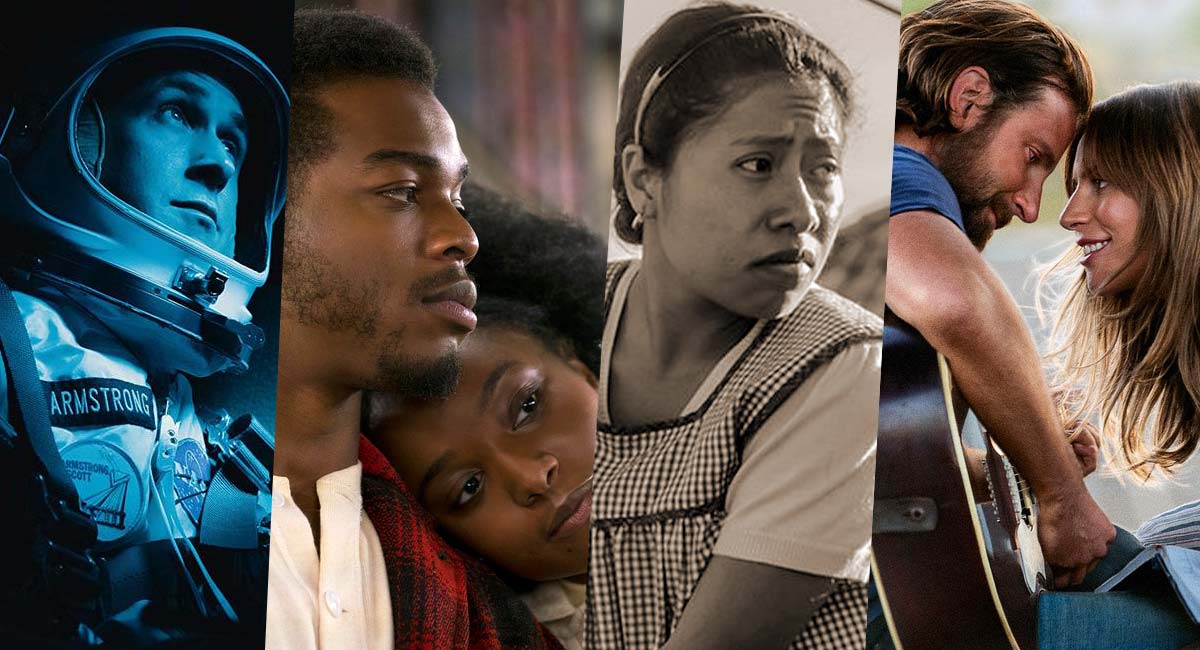New York-based film critic, author and Flavorwire Film Editor JASON BAILEY. Follow him on Twitter here. All of Jason’s TIFF reviews can be read here.
It’s not that this year’s Toronto International Film Festival was bad. There was a baseline competence to even the worst things I saw there, a sort of B-/C+ average to a number of films that checked the boxes – capable direction, strong performances, competent screenplay – without ever quite taking off. But that means I saw few genuinely great movies than usual, which is just the way these things shake out some years. Many, though, were very, very good. These are the best of those.
5. “First Man”
When Neil Armstrong’s daughter Nancy dies early on in Damien Chezzelle’s muted biopic, the director handles it much as his subject did: with reservation and grace. Armstrong (played with unwavering restraint by Ryan Gosling) puts on his brave face at the funeral and the reception; only later will he go off by himself to shed his tears. That scene unlocks Chezzelle’s entire approach – it’s a movie about giant, historical events as told not through iconic images (like, God help us, planting the American flag on the moon as the music swells and a single patriotic tear falls from Buzz Aldrin’s eye) but through personal, private moments. It’s a historical epic as character drama, a bold decision that might alienate some viewers. They don’t deserve a movie like this.
4. “A Star Is Born”
Far be it from me to spoil a movie that’s still three weeks from release, but let me say this: there’s a smash cut in the last scene of “A Star Is Born” that’s an absolute miracle. It’s the show-stopper closing number, the kind of scene that’s inevitable in a movie like this, Lady Gaga performing an earnest ballad on a giant stage in a big dress with big hair in front of a big orchestra, and then right in the middle of all that, director Bradley Cooper cuts – short-circuiting the theatrics of that last beat to reinsert the sort of offhand intimacy that makes this, the third remake of William A. Wellman’s 1937 Hollywood melodrama, feel fresh and vibrant. Those little jolts of immediacy surge throughout the film, which marks Cooper as a major filmmaker (I’m as surprised as you are) and Gaga as a movie star.
3. “Can You Ever Forgive Me?”
Melissa McCarthy does her best film work to date in this uncompromisingly complicated adaptation of Lee Israel’s memoir, in which the bestselling biographer fesses up to the rough patch when paid her bills by forging personal letters from noted authors and selling them to collectors. McCarthy makes Israel sympathetic without ever stooping to easy “likability;” it helps that director Marielle Heller casts Richard E. Grant as her partner in crime (and drinking), and that screenwriters Nicole Holofcener and Jeff Whitty give them such irresistible banter.
2. “High Life”
Claire Denis’ contribution to the rather grand tradition of bugfuck space movies is predictably wild, but that’s the only thing predictable about it; she sends Robert Pattinson and a bunch of young convicts adrift in outer space, installs Juliette Binoche as a mad scientist, and lets the blood (and spit, and semen) spill. Denis fills her frames with disturbing and occasionally repugnant images, but she’s never cavalier or careless about them; she knows the loaded dice she’s shooting, and the effect they’ll have an audience (and the considerable percentage of opening night walkouts became one of the festival’s big story, which must’ve delighted the filmmaker to no end). Festival coverage being what it is, I had a mere hour or two to crank out a review of this one after the credits rolled, and normally I’d worry that this wasn’t a sufficient amount of time to ingest and analyze it. But then again, I’m not sure how long that process would actually take.
1. “If Beale Street Could Talk”
Barry Jenkins’ much-anticipated “Moonlight” follow-up does not disappoint – in fact, it plays like an expansion of that film’s moods and themes, honing in on the warm, hang-out vibe of that wonderful, extended diner sequence and living in it for two hours. Kiki Layne and Stephan James are marvelous as a pair of young lovers, separated by circumstance, who must try against all evidence and common sense to hold out hope for their future. Gorgeously photographed, sensitively acted, and written with an eye on preserving James Baldwin’s prose without surrendering to it, “Beale Street” reconfirms Jenkins is one of our most exciting cinematic artists. Not that this was ever really in doubt.





